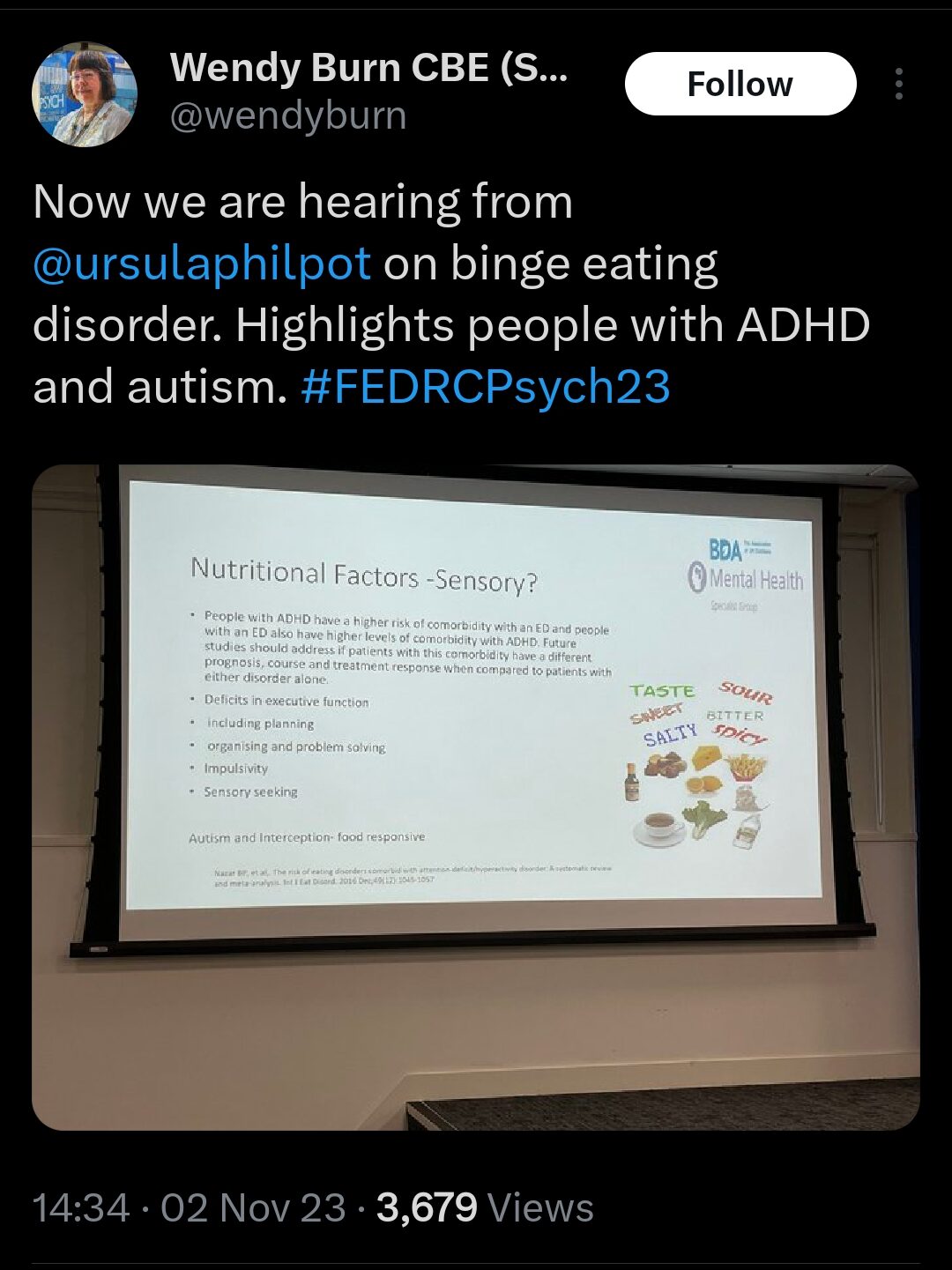Unpacking the Nutritional Dynamics of Binge Eating Disorder: Insights from Ursula Philpot
The Faculty of Eating Disorders Annual Conference, a hub for the latest in eating disorder research and practice, was recently graced by an array of experts who shared their groundbreaking work. Among them was Ursula Philpot, a consultant dietitian and senior lecturer, whose presentation provided profound insights into the nutritional aspects of Binge Eating Disorder (BED).
Binge Eating Disorder, characterized by episodes of eating large quantities of food, is often shrouded in a complex web of psychological and physiological factors. Ursula’s talk delved into the intricate drivers of binging from a dietetic perspective, bringing to light the role of dietary restriction and sensory experiences in this condition.
Ursula Philpot’s expertise in eating disorders and mental health, along with her role as a Clinical Associate for NHS England, positions her uniquely to tackle the challenges of BED. She emphasized the importance of understanding the evidence behind various types of dietary restrictions and how they contribute to the cyclical nature of binge eating.
More intriguingly, Ursula touched upon the sensory experiences associated with eating, a facet of BED that’s less discussed but equally significant. It’s these sensory intricacies that can either propel the cycle of binging or, if understood correctly, can pave the way for recovery.
Addressing BED requires a multifaceted approach, and Ursula proposed a recovery framework that encompasses not just nutritional aspects but also integrates psychological support. The options discussed in her presentation reflect a holistic understanding of BED, moving beyond mere symptom management to address the root causes.
In an environment that often oscillates between the latest diet trends and the deep-seated stigmatization of eating disorders, Ursula Philpot’s work stands out as a beacon of evidence-based practice aimed at recovery and empowerment. Her presentation at the conference not only highlighted the complexities of BED but also provided a roadmap for professionals looking to enhance their therapeutic approaches to this disorder.


